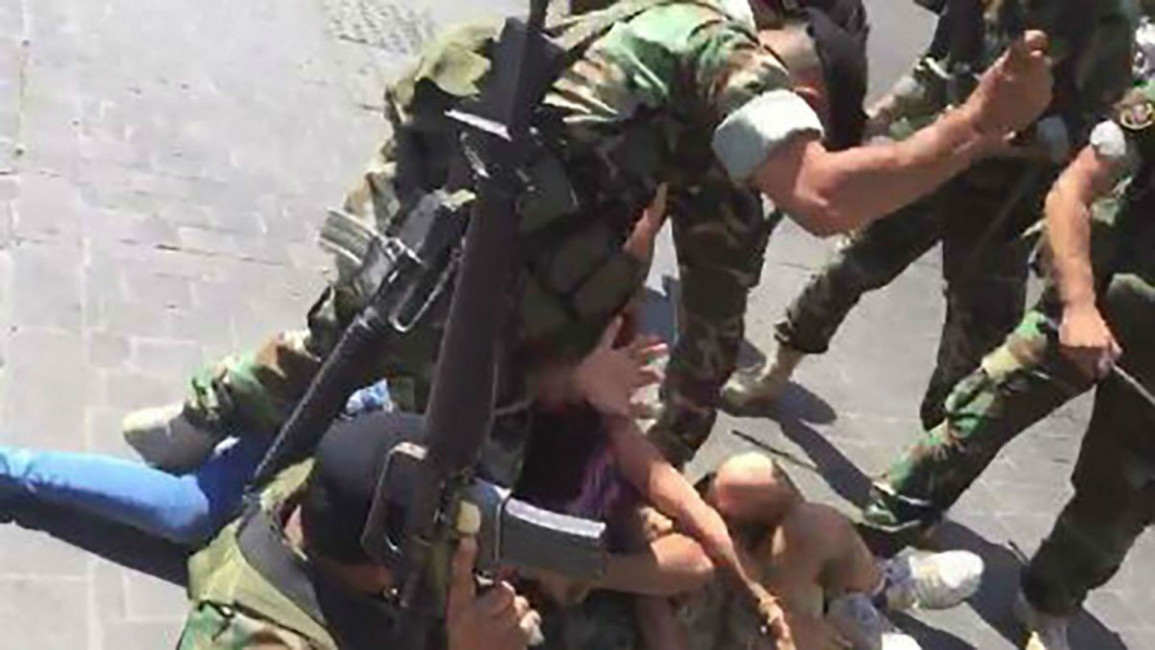Human Rights Watch demands Lebanon government hold soldiers accountable for 'unlawful' beating of protesters
A rights group has called on the Lebanese authorities to hold soldiers responsible for the "unlawful" public beatings of protesters last week in the capital Beirut.
Human Rights Watch said on Wednesday that military personnel must be investigated for beating, kicking and striking protesters with batons last Friday during a demonstration against a third extension of parliament's term.
"Military authorities have an opportunity to show they are willing to hold their personnel accountable for the unlawful use of force," said Lama Fakih, deputy Middle East director at HRW.
"The military prosecutor should make public the results of its investigation and hold anyone responsible for unlawful force accountable and security services should make serious changes to the way their personnel respond to protests."
Protesters interviewed by HRW said that soldiers hit them with batons, punched them in the face and kicked them after some of them threw eggs and tomatoes at cars they believed were carrying lawmakers.
Several videos, which have been shared widely on social media, taken of the beatings at the protest corroborate their accounts.
One video shows a group of soldiers repeatedly kicking and hitting two protesters with batons as they lay on the ground.
Last week, the Lebanese Cabinet approved a new elections law and referred it to parliament for ratification, paving the way for parliamentary elections postponed twice over the past year.
During Wednesday's government meeting that approved the new law, the term of the current parliament was extended 11 months until May 6, 2018 when the vote is scheduled, triggering protests.
The current parliament was elected to a four-year term in 2009, but its tenure has been extended twice over security concerns and a civil war in neighbouring Syria that spilled into Lebanon on several occasions.
The agreement came days before the legislature's term was to end on June 20 - avoiding sending the country into a fresh political crisis.
Recent disputes over an election law that is at the heart of the nation's sectarian political system had pushed Lebanon to the brink of crisis, threatening to leave it without a parliament for the first time.



